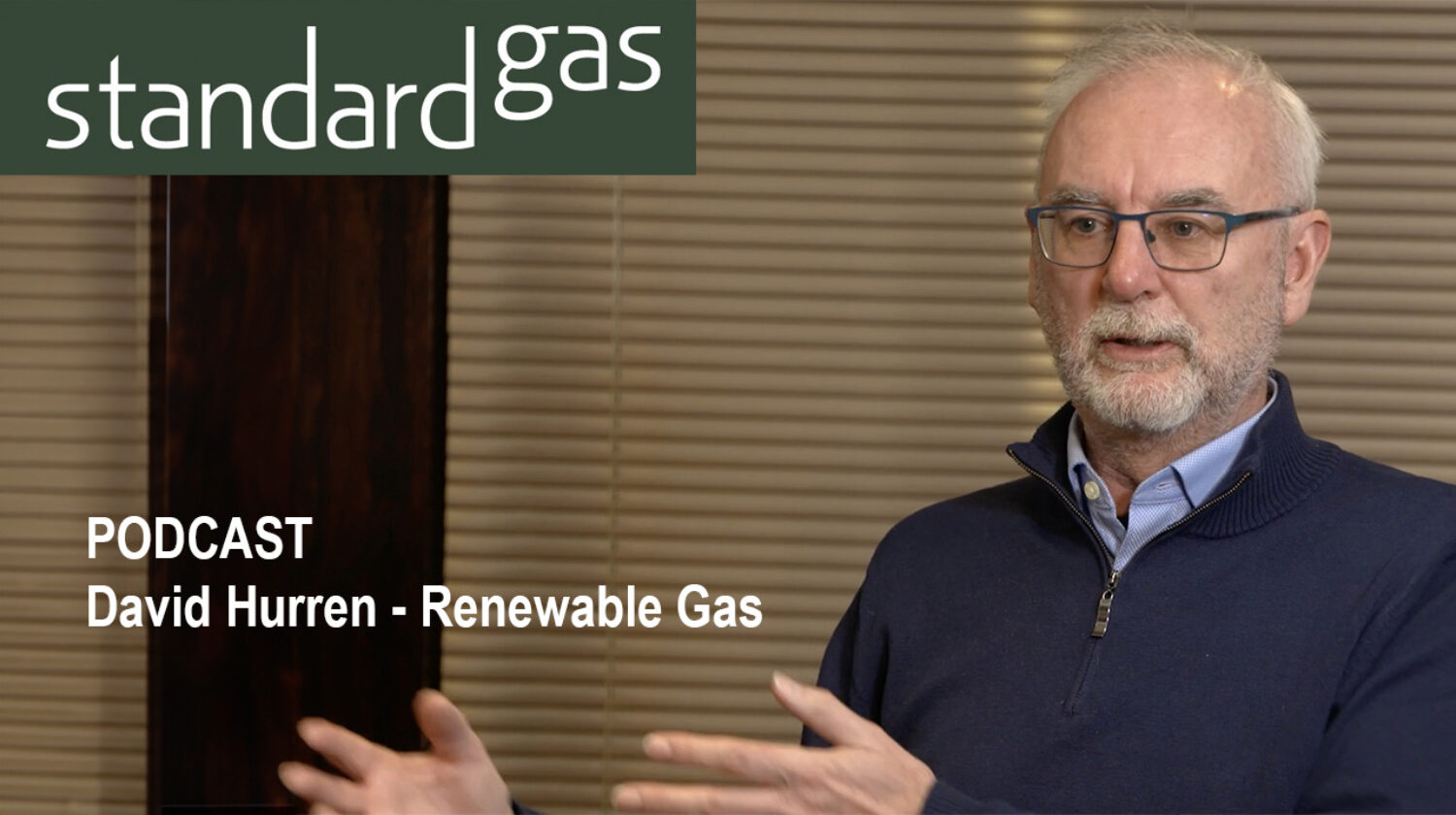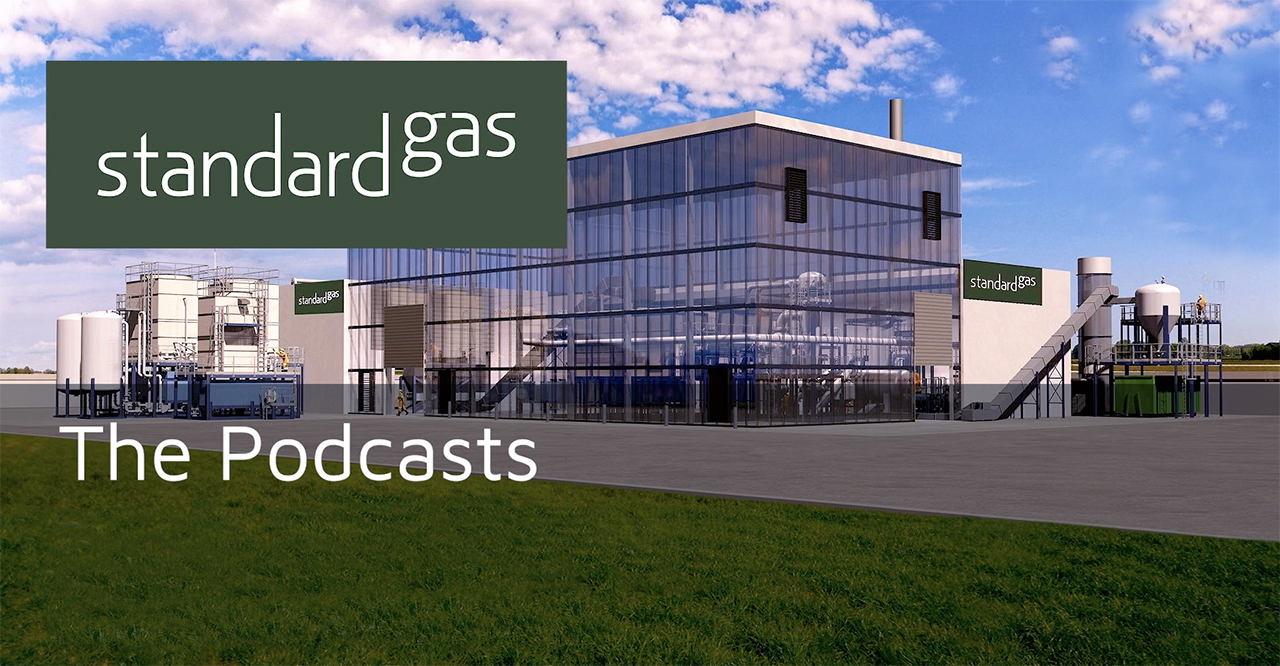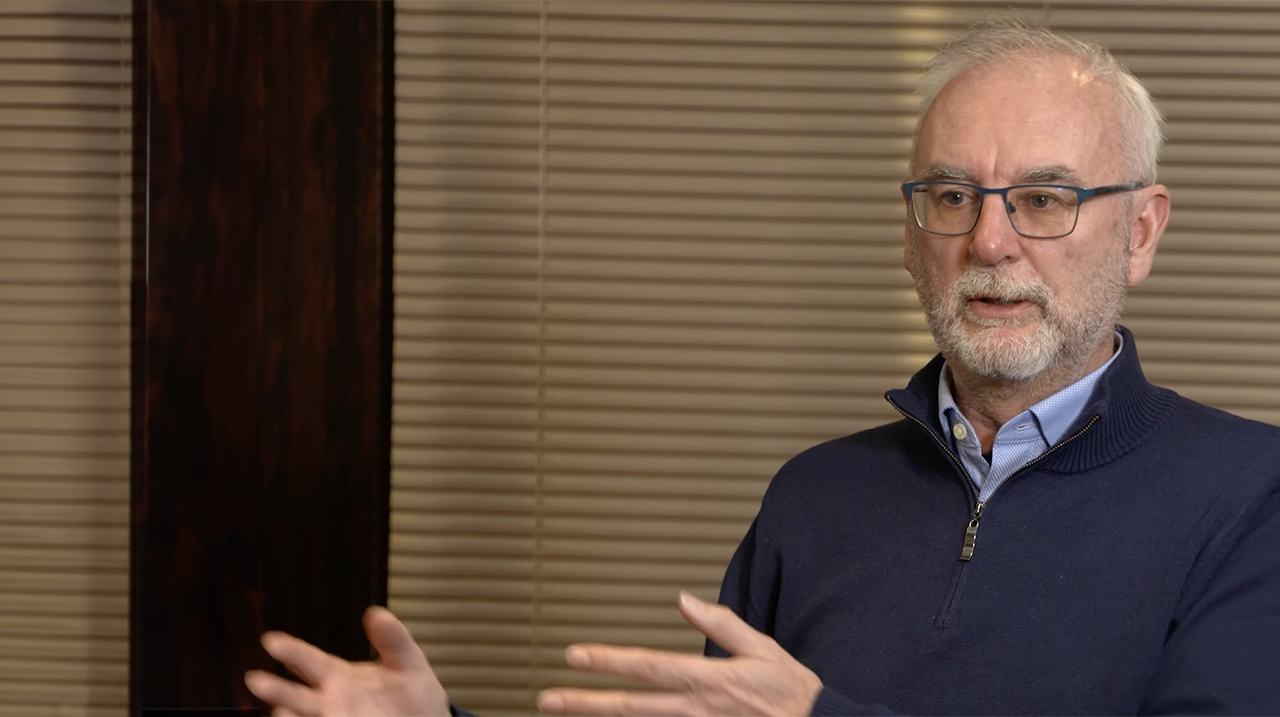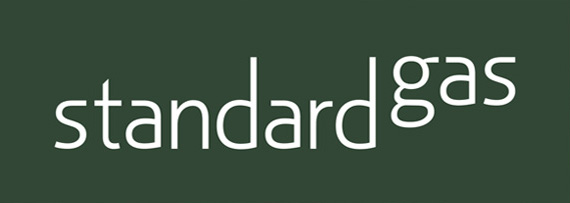Standard Gas’ Podcast launches with renewable gas expert, David Hurren
To explore pathways to Net Zero and the energy transition, Standard Gas is producing an ongoing series of podcasts. Hosted by environmental journalist, Gill Williams, the podcasts will include different sector experts and Standard Gas executives reviewing the challenges and solutions to Climate Change mitigation.
In the first of several short episodes, Standard Gas Advisory Board Member, David Hurren, explains ‘renewable gas’, the technologies to produce it from waste-derived feedstocks, and its role in future energy provision. David recently retired as CEO of Air Liquide Biogas Solutions UK after a 26-year career with industrial gas giant, Air Liquide. Currently, he is President of the British Compressed Gases Association, and an advisor to the UK’s Anaerobic Digestion and Bioresources Association.
Further episodes with David and Gill discuss the complex network of UK waste management, and the potential to decarbonise the sector and accelerate energy and resource recovery from household wastes and biosolids. They also delve into the necessity for government, industry, and other interested parties to co-operate in the development of policy and regulation that encourage and effectively manage the use and development of Net Zero- focused operations and technology. David also takes the opportunity to explain why he joined Standard Gas’ Advisory Board.
Upcoming episodes will see Gill talking with another Standard Gas Advisory Board Member, David Partridge, along with one of the Company’s Executive Directors and Co-Lead for Carbon, Brian Reynolds. David, a trained architect and prominent figure in the property and built environment sector, is also playing in lead role in the UK push for Green Buildings. Together, David and Brian, who also has extensive property sector experience, tell Gill about the routes being developed to decarbonise the buildings in which we live, work and play.
TRANSITION TO NET ZERO WITH OUR CARBON-REMOVING TECHNOLOGY
Carbon Negative Energy: Each year, a single SG100 plant can generate up to 40,000 MW hours of carbon-negative power, enough for around 10,000 homes, offices or commercial properties, as well as for the transportation sector and wider industry.
Carbon Reduction: It will remove up to 25,000 tonnes of CO2e – equivalent to the annual carbon emissions of 5,000 cars. With electrolysis, a plant processing biogenic waste will generate over 650 tonnes of green hydrogen. And the SG100 closes the waste management loop, offering a better low carbon alternative to landfill and incineration.
Carbon Capture: TheSG100 technology also generates ‘biochar’ and ‘carbon char’, a black, granular, dust-like co- product that can be sequestered in valuable agricultural, environmental, and industrial applications.




